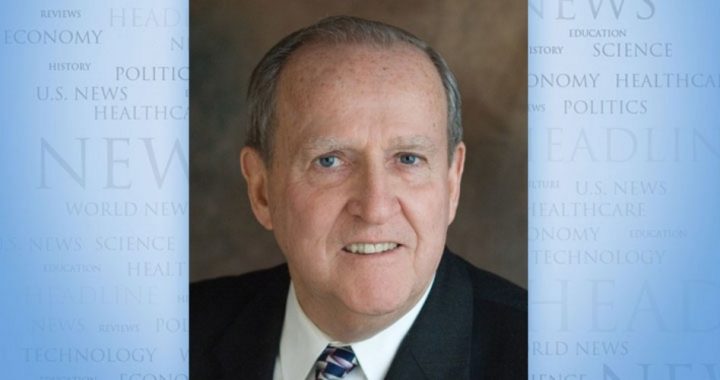
The investigation into possible Russian influence in the 2016 presidential election has come up empty after two years of thoroughly combing through allegations, rumors and wishful thinking. To date, nothing has emerged to back up charges that many Americans have been led to believe — namely, that Donald Trump sought and gained help from Russian disinformation agents to swing the 2016 election in his favor.
Using fake news, the mass media’s character assassins did gain their victory a year later. On December 12, 2017, after Trump had been in office for almost a full year, voters in Alabama were asked to choose between liberal Democrat Doug Jones and Trump-supporting Roy Moore for the U.S. Senate seat vacated earlier by Senator Jeff Sessions when he accepted appointment as the nation’s attorney general.
Moore, a twice-elected statewide official in Alabama, was expected to win the predominantly conservative state. So the liberal media cranked up their fake news machinery and began casting doubt on the propriety of electing the former chief justice of the state’s Supreme Court. A story appearing in the Washington Post claimed that Moore had, several decades earlier, engaged in sexual misconduct with a teen-age girl who at the time was 20-some years his junior.
Then, The New Yorker magazine published a story claiming that Moore had been banned from even entering the Gadsden, Alabama, shopping mall near his home. Again, the charge dealt with claims that Moore, two decades older than the girls he was supposedly pursuing, had sexually harassed some teenage other girls working at the mall.
But the Washington Post story fell apart when the supposed proof of Moore’s misconduct, his signature in a girl’s high school yearbook, was deemed of no consequence. Then the Gadsden mall manager — still on the job after many years — said that the charge was false and that, if it were accurate, he would have known about it and remembered it. And a veteran mall security guard also rendered his testimony that no such ban regarding Moore had ever existed.
Several other women then insisted that Moore had indeed harassed them when they were teens. Almost immediately, 12 other women who knew Roy Moore came forward to testify that they knew him through many years to always be respectful regarding his attitude and his treatment of women.
Nevertheless, Roy Moore was painted as a sexual ogre whose conduct close to 40 years earlier supposedly saw him attempt to force himself on teen-age females. There was no proof of the charges. But there was plenty of publicity about them. Several U.S. senators, including the GOP leader Mitch McConnell (R-Ky.), asked Moore to step aside. So did Senator Jeff Flake (R-Ariz.). Their willingness to accept unproven charges discredited them, not Moore.
On Election Day in December 2017, however, the harm done to Roy Moore’s character prevailed and Democrat Jones won the very close election. Just recently, Russian disinformation agents were gleefully pointing to articles appearing in the New York Times that discussed how a group of Democrats spread fake news claiming that Roy Moore intended to ban alcoholic beverages in Alabama. That accusation amounted to a certain discrediting of an Alabama candidate for any office. But it was also false.
According to a report in the January 14, 2019 New York Times, personnel at the Kremlin-financed RT news agency (formerly known as Russia Today) and a separate news provider known as Sputnik concluded that newer revelations have “cast Democrats’ Russiagate accusations into further doubt.” The irony here is that Russian activists have concluded that there is still no evidence to back up charges that Republican Trump secured assistance from Russians while there is now evidence that Democratic operatives did spread fake news in order to help their candidate in the Alabama 2017 senate election.
Will Special Counsel Robert Mueller ever conclude there were no findings of Trump-engineered Russian collusion that defeat Hillary Clinton? A report to the nation making exactly that conclusion would be most welcome. Even Russian political operatives are making that conclusion. But we’re not holding our breath waiting for our country’s officials and mass media leaders to do what’s right. They have long demonstrated that they are far from trustworthy.
What we do expect is more of the completely unethical, but increasingly effective, spreading of fake news to sway elections.
John F. McManus is president emeritus of The John Birch Society.



